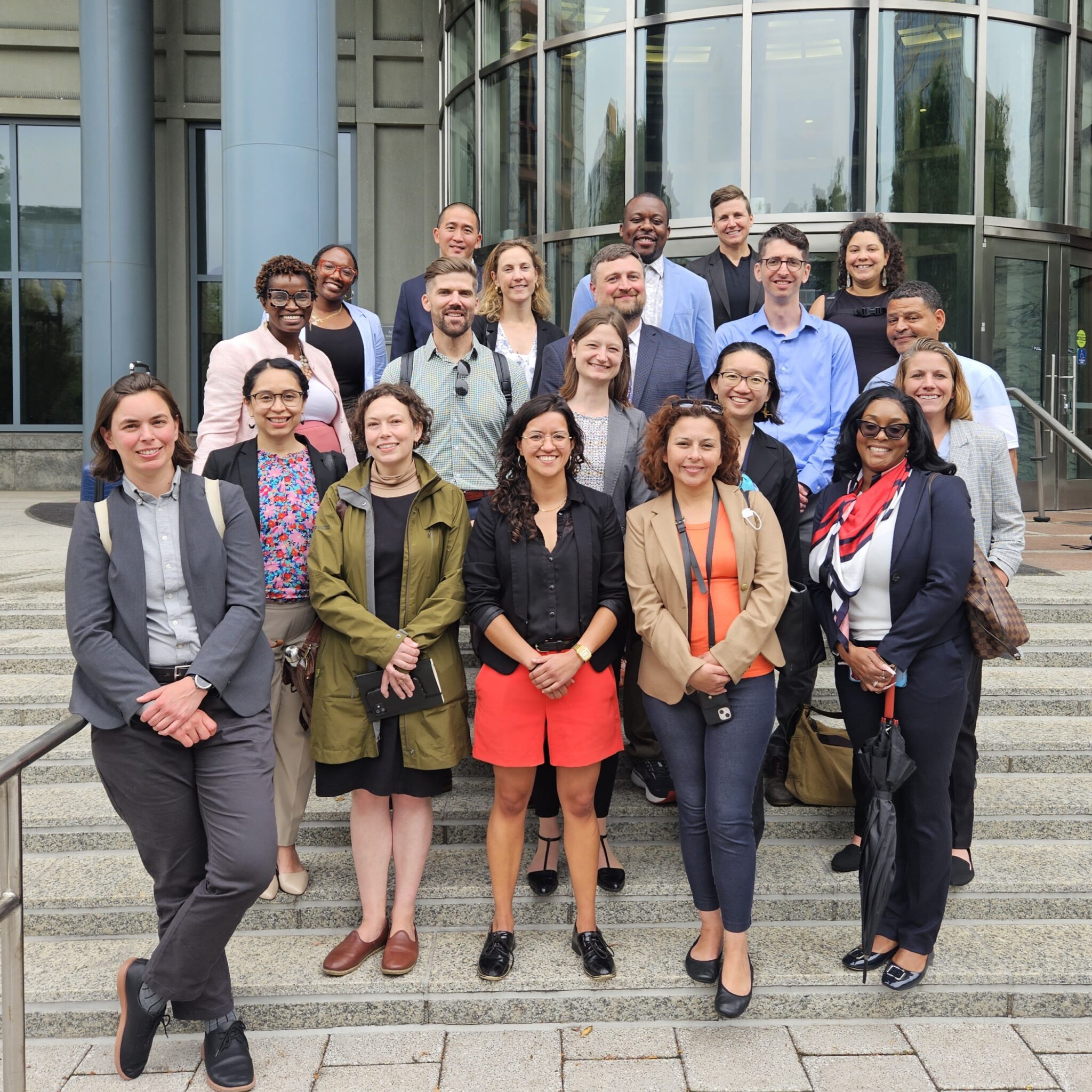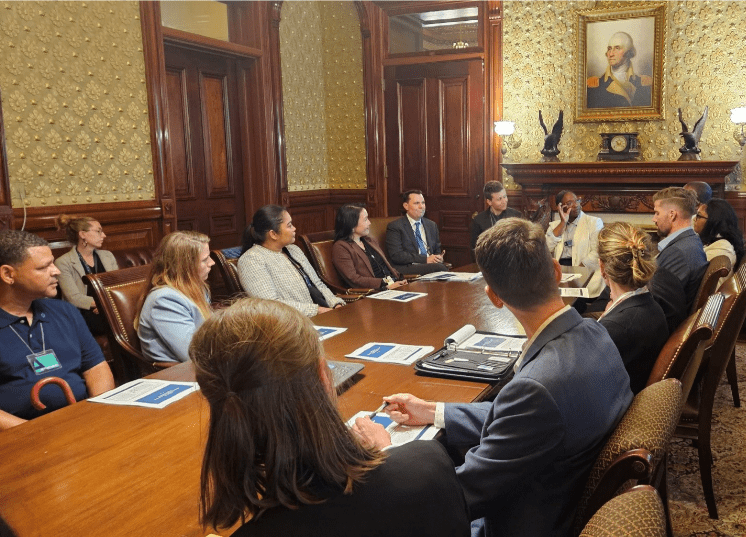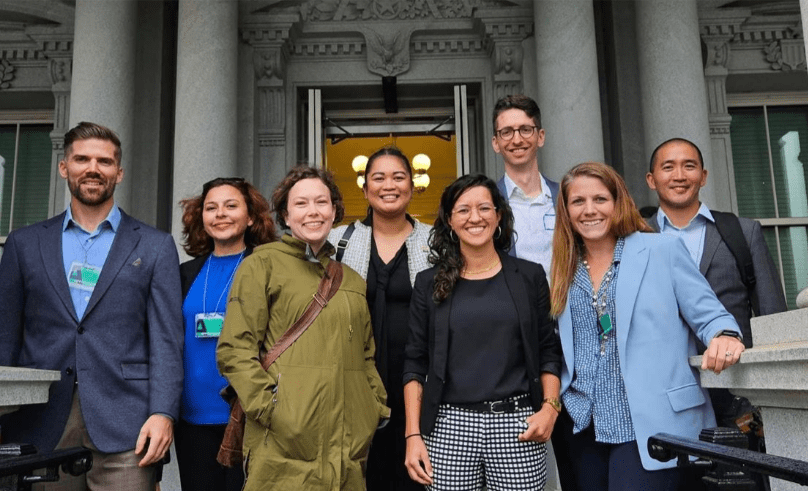 Margo (front row, center) and the Transformative Justice Infrastructure Fellows in front of the US Department of Transportation in Washington, DC.
Margo (front row, center) and the Transformative Justice Infrastructure Fellows in front of the US Department of Transportation in Washington, DC. Blog Stats: 730 words | 4-minute read
Meet Margo Iñiguez Dawes, our Equity Coordinator for the Levy to Move Seattle. She integrates department values and equity goals into a framework that guides how we distribute funding in Seattle. She works to make sure that City investments serve people and communities that government has historically underinvested in through transformative infrastructure projects, resources, and programming.
Recently, Margo was invited to be one of eighteen fellows in the very first Transformative Justice Infrastructure Fellowship hosted by the Communities First Infrastructure Alliance, PolicyLink, and Race Forward’s Government Alliance on Race and Equity (GARE).
These eighteen infrastructure-related public sector leaders were selected for their commitment to proactively addressing historical and structural inequities through their work.

We sat down with Margo for a Roadside Chat to learn more about this Fellowship opportunity, the historic surge of federal funding the U.S. is currently seeing, and what it means for our work at SDOT.
Hi, Margo. To start us off, can you tell me about your role at SDOT?
I am the Levy Equity Coordinator, so I work on our Levy to Move Seattle (“the Levy”), which is a nine-year, over $900 million property tax levy approved by voters in 2015 that funds almost a third of our work as a department. While advancing equity was part of the original vision of the Levy, the 30 programs funded by it have taken different approaches to incorporating equity metrics and data into their individual prioritization frameworks.
My role is about improving and updating how we integrate our department values into our work outcomes and introducing a consistent equity framework for how and where we distribute our Levy deliverables citywide.
I am working with Levy program owners and the portfolio management team to achieve a more equitable geographic distribution of our Levy investments, which will look like prioritizing these investments in neighborhoods where we have historically underinvested.
What is the purpose of the Fellowship you’re participating in?
I’m participating in the Transformative Justice Infrastructure Fellowship this year alongside 17 other local, regional, and state-level public sector leaders with influence over infrastructure funding in their jurisdictions. The purpose of the fellowship is to center a racial equity analysis as we take advantage of this once-in-a-generation level of infrastructure investment that we’re experiencing right now.
With several trillion dollars in federal funding from the various recent infrastructure bills, we’re looking to use this opportunity to make some transformative impacts in racialized communities that have been demanding and really needing significant infrastructure improvements for a long time — or who have been historically harmed by previous infrastructure investments that government has made, like highways, for example, going through neighborhoods instead of connecting them to opportunities.
And while we consider transformative funding opportunities, it is also critically important that we learn from our history and work to avoid and mitigate the potential for further government harm through this bonanza of infrastructure investment. For example, in a growing city like Seattle, we need to consider the potential for significant infrastructure investments to exacerbate existing displacement pressures.
What do you hope to learn from this opportunity?
On the technical side of things, I really want to have a robust plan for what types of data and indices should go into a decision-making framework about how to prioritize where we spend funding. We’re trying to introduce something that many different programs across SDOT can easily use and apply to their other existing prioritization frameworks, even and especially after this Levy as we look toward a future funding package.
More broadly, I am also grateful to be finding community and accountability in the same place and to have people to remind me to not get too focused on the data and forget about the most critical element, which is having really strong connections to community leadership and understanding what the community priority projects are in these different high equity priority areas.
We’re excited to see what Margo will develop through this fellowship! We look forward to learning from and advancing the work being done to center equity and community throughout Seattle.
